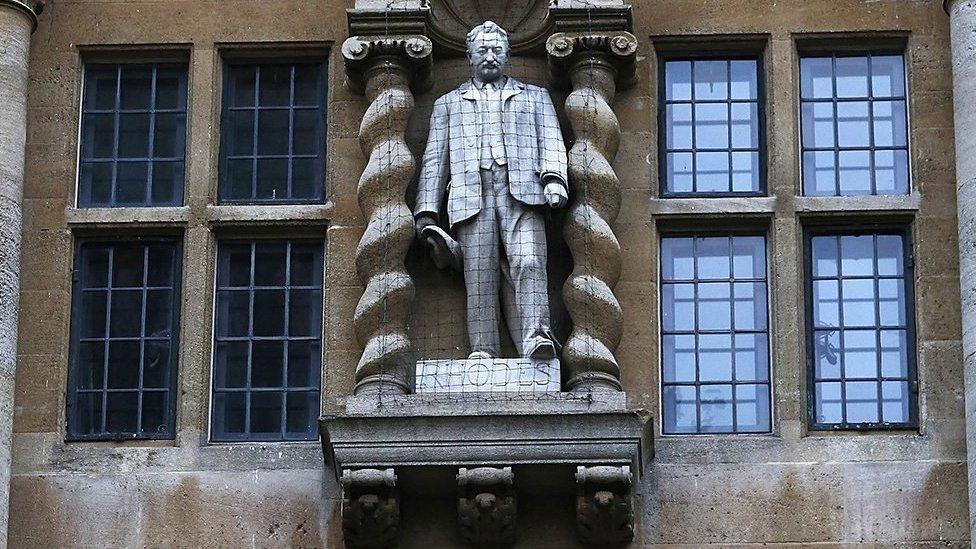Cancel culture: What unites young people against Obama and Trump
- Published
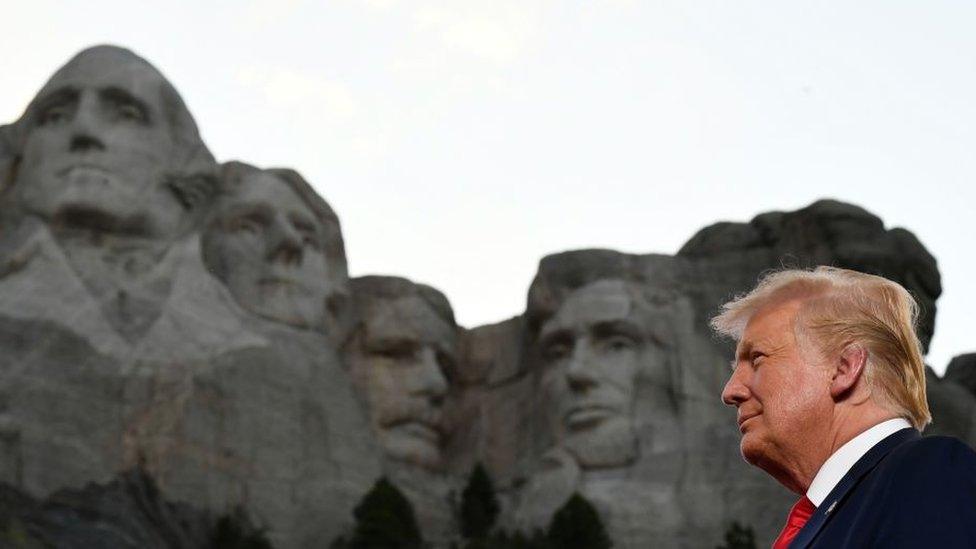
In the midst of America's racial reckoning, the question of how to deal with memorials to controversial leaders has risen again to the national stage - and has brought back criticisms of "cancel culture" with it.
"Cancel culture", the term for when individuals or companies face swift public backlash and boycott over offensive statements or actions, has been an incendiary topic in the movements of recent years, whether relating to misogyny, race or homophobia.
To some, it's a new way to flag past wrongs. To others, it's an ineffective over-reaction in the court of public opinion. In the wake of the George Floyd protests, some see the dethroning of historical figures associated with racism as the latest iteration of cancel culture.
On Tuesday, a group of more than 100 famous writers such Salman Rushdie and JK Rowling published a letter in Harper's magazine, external in which they decried "this stifling atmosphere" as toxic to artistic expression and healthy debate.
Here's a look at what US leaders and cultural experts have had to say about it.
Trump: 'Far-left fascism'
US President Donald Trump appears to be making it a central part of his re-election campaign. He has deemed cancel culture "far-left fascism", saying it is "driving people from their jobs, shaming dissenters, and demanding total submission from anyone who disagrees...is the very definition of totalitarianism".
He has criticised calls for renaming sites and removing monuments as part of this "dangerous movement".
"This attack on our liberty, our magnificent liberty, must be stopped, and it will be stopped very quickly," Mr Trump told supporters during his Independence Day event on 3 July.
"We will expose this dangerous movement, protect our nation's children, end this radical assault, and preserve our beloved American way of life."
Obama: 'The world is messy'
Last October, former President Barack Obama challenged cancel culture and the idea of being "woke" - a term describing being alert to injustices and what's going on in the community - saying change was complex.
Watch former US President Obama talk about "woke" culture
"I get a sense among certain young people on social media that the way of making change is to be as judgemental as possible about other people," Mr Obama said.
"The world is messy. There are ambiguities. People who do really good stuff have flaws."
Young people who disagree with Trump and Obama
Mr Trump's critics in particular have said his own remarks condemning and publicly shaming those he disagrees with - from news outlets to former staff to protesters - also play into cancel culture.
But younger generations have pushed back against the notion that cancel culture equals unhelpful judgment.
What it's like to be "cancelled"?
Journalist Ernest Owens wrote in an opinion piece for the New York Times, external: "As a millennial who has participated in using digital platforms to critique powerful people for promoting bigotry or harming others, I can assure you it wasn't because they had 'different opinions'.
"It was because they were spreading the kinds of ideas that contribute to the marginalisation of people like me and those I care about."
Owens said Mr Obama's generation failed to understand that this was not bullying people with different opinions, but rather pushing back against influential people who had caused harm or could in the future.
Essayist Sarah Hagi, writing for Time Magazine, external, said those "whose privilege has historically shielded them from public scrutiny" turned to phrases like cancel culture to "delegitimise the criticism".
"I'm a black, Muslim woman, and because of social media, marginalised people like myself can express ourselves in a way that was not possible before," she said. "That means racist, sexist, and bigoted behaviour or remarks don't fly like they used to."
So what's the statue row about?
Opinions held by protesters range from tearing down Confederate statues to dethroning all monuments associated with colonisation or with ties to slavery and racism.
Activists calling for the removal of statues like Confederate general Robert E Lee and Italian explorer Christopher Columbus have said these monuments glorify in lieu of teaching people about history.
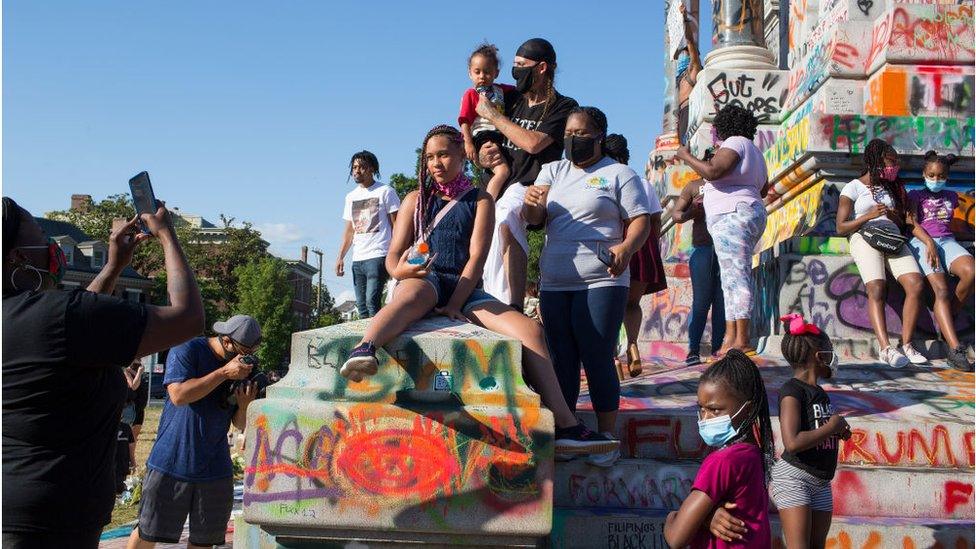
A statue of Confederate General Robert E Lee in Virginia has been covered in graffiti
What began in America has caused statues of past leaders around the world - from Winston Churchill to Mahatma Gandhi - to come under scrutiny.
And what's Trump said about this?
The president has called US statues "sacred" and "treasured American legacies", while describing the push for their removal "a merciless campaign to wipe out our history" and "erase our values".
His address at Mount Rushmore - a controversial memorial on land sacred to Native Americans - focused on these notions of "angry mobs" attacking US culture.
"Before these figures were immortalised in stone, they were American giants in full flesh and blood, gallant men whose intrepid deeds unleashed the greatest leap of human advancement the world has ever known," Mr Trump said.
President Trump: "Angry mobs are trying to tear down statues of our founders."
The president has also defended the preservation of symbols of the Confederacy - the group of southern states that fought to keep slavery and sparked the Civil War.
What about Democrats?
Former Vice-President and Democratic presidential candidate Joe Biden has also defended keeping monuments to presidents past, but said those memorialising Confederate leaders should be taken down.
"The idea of comparing whether or not George Washington owned slaves or Thomas Jefferson owned slaves, and somebody who was in rebellion committing treason trying to take down a union to keep slavery, I think there's a distinction there," Mr Biden said at a recent news conference.
He added that Confederate statues of people who "strongly supported secession and maintaining slavery" should go to museums.
Mr Obama has also touched on the issues over Confederate memorials in the past, saying the Confederate flag belongs in a museum.
So where does the public stand?
A Quinnipiac University poll on 17 June, external found that most Americans support removing Confederate statues, with four in 10 opposing.
The numbers are a stark change from when Quinnipiac posed the same question three years ago and found 50% of people were against removing the statues.
What about other views?
African American Studies Senior Lecturer Jason Nichols of the University of Maryland says deciding which monuments ought to go should depend on the reason the person is memorialised.
"Statues and monuments are supposed to show where we want to be - the people in the past who have shown us a path to a better and unified nation, the people who represent the ideals that the nation aspires to," Mr Nichols told the BBC.
"We have to talk about the Confederacy, we just don't have to praise it in public."
He says that ideally, all statues belong in museums that can provide context and there is never a reason to bury history, adding: "I do think that some people do try to take this moral indignation a little too far and extend it beyond these Confederate monuments."
"The key difference is we praise Lincoln for what he did right, not what he did wrong," Mr Nichols says, noting that while people like Washington and Jefferson were slaveholders and did not outright condemn slavery, they still put forth important principles that were positive in the long-run.
"That is the major nuance with Confederate statues - we're praising them for tearing our country apart."
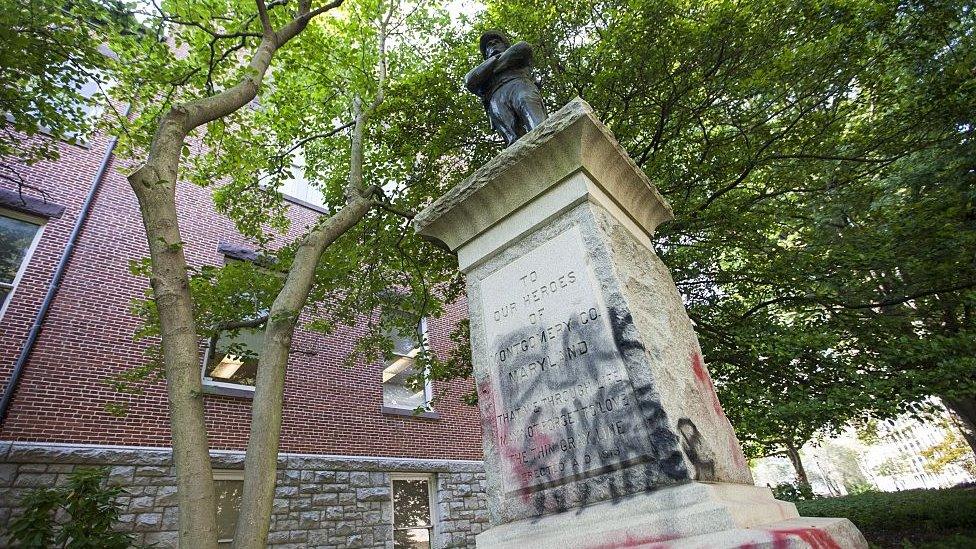
Others think that statues to the Confederacy should remain up, but only with additions like plaques or even graffiti.
Columnist Jeff Schapiro of the Richmond Times Dispatch told the Economist, external the graffiti on monuments in Richmond "make them far more approachable, that humble them, and have made these statues welcoming places for people they were not intended to draw, people they were largely intended to intimidate".
Reporting by Ritu Prasad
- Published30 November 2019
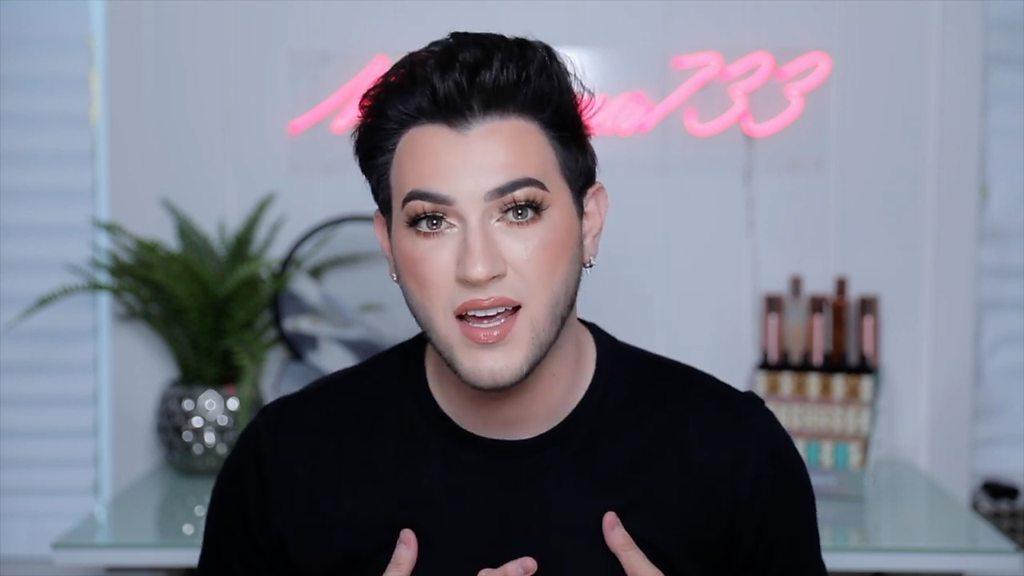
- Published30 October 2019
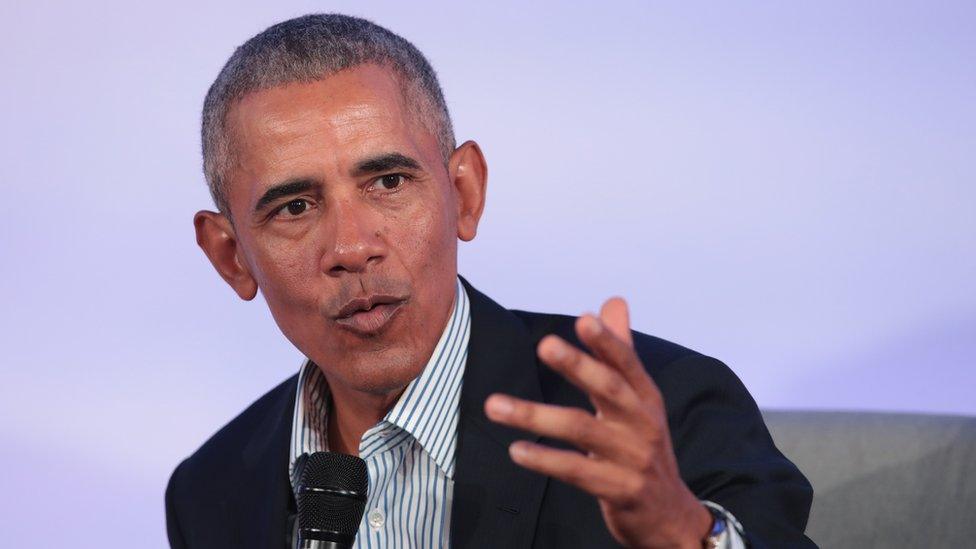
- Published18 June 2020
